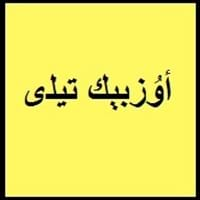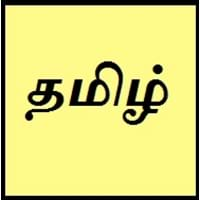Countries
Turkey, Uzbekistan
Malaysia, Mauritius, Puducherry, Singapore, Sri Lanka, Tamil Nadu
National Language
Afganistan, China, Kazakhstan, Kyrgyzstan, Russia, Tajikistan, Turkmenistan, Uzbekistan
Singapore, Sri Lanka, Tamil Nadu
Second Language
Not spoken in any of the countries
Andaman and Nicobar Islands, kerala, Puducherry
Speaking Continents
Middle East
Asia
Minority Language
Not spoken in any of the countries
Canada, Malaysia, Mauritius, Reunion, Seychelles
Regulated By
Not Available
Official language Commission of Government of Tamil Nadu, Thanjavur Tamil University
Interesting Facts
- Uzbek is officially written in the Latin script, but many people still use Cyrillic script.
- In Uzbek language, there are many loanwords from Russian, Arabic and Persian.
- Tamil is the oldest language in the world. Tamil was spoken in South India more than 5000 years ago.
- The first legally recognized Classical Language of India is Tamil.
Similar To
Kazakh and Uyghur Languages
Malayalam
Derived From
Not Available
Not Available
Alphabets in
Uzbek-Alphabets.jpg#200
Tamil-Alphabets.jpg#200
Scripts
Arabic, Cyrillic, Latin
Tamil
Writing Direction
Not Available
Left-To-Right, Horizontal
Hello
Salom
வணக்கம் (Vanakkam)
Thank You
Rakhmat
நன்றி (Naṉṟi)
How Are You?
Qalay siz?
நீங்கள் எப்படி இருக்கிறீர்கள்? (Nīṅkaḷ eppaṭi irukkiṟīrkaḷ?)
Good Night
Hayirli tun
நல்ல இரவு (Good night) / irravu vanakkam (Good night)
Good Evening
Hayirli kech
நல்ல மாலை (Nalla mālai)/ மாலை (irravu vanakkam)
Good Afternoon
Hayirli kun
பிற்பகல் வணக்கம் (perpagal vanakkam)
Good Morning
Hayirli tong
காலை வணக்கம் (Kaalai Vanakkam)
Please
Iltimos
தயவு (Tayavu)
Sorry
Kechiring!
மன்னிக்கவும் (Maṉṉikkavum)
Bye
Xayr
சென்று வருகிறேன் (Sendru Varukiren)
I Love You
Sizni sevaman
நான் உன்னை காதலிக்கிறேன் (Naan Unnai Kadalikiren)
Excuse Me
Iltimos! Menga qarang
என்னை மன்னியுங்கள் (Eṉṉai maṉṉiyuṅkaḷ)
Where They Speak
Not Available
Kongu
Dialect 2
Afghan
Madurai Tamil
Where They Speak
Not Available
Madurai, South Tamil Nadu
Dialect 3
Ferghana
Tirunelveli Tamil
Where They Speak
Not Available
South Tamil Nadu, Thoothukudi, Tirunelveli
Second Language Speakers
Not Available
Native Name
أۇزبېك ﺗﻴﻠی o'zbek tili ўзбек тили (o‘zbek tili)
தமிழ்
Alternative Names
Annamese, Ching, Gin, Jing, Kinh, Viet
Damulian, Tamal, Tamalsan, Tambul, Tamili
French Name
ouszbek
tamoul
German Name
Usbekisch
Tamil
Pronunciation
Not Available
[t̪ɐmɨɻ]
Ethnicity
Uzbek
Tamil people or Tamilans
Origin
9th–12th centuries AD
300 BC
Language Family
Turkic Family
Dravidian Family
Subgroup
Turkic
Not Available
Branch
Southestern(Chagatai)
Not Available
Early Forms
Chagatay
Old Tamil and Middle Tamil
Standard Forms
Uzbek
Modern Tamil
Signed Forms
Not Available
Signed Tamil
Scope
Macrolanguage
Individual
ISO 639 6
Not Available
tam
Glottocode
uzbe1247
tami1289, oldt1248
Linguasphere
No data available
tami1289
Language Type
Living
Living
Language Linguistic Typology
Not Available
Subject-Object-Verb
Language Morphological Typology
Not Available
Not Available
Uzbek and Tamil Greetings
People around the world use different languages to interact with each other. Even if we cannot communicate fluently in any language, it will always be beneficial to know about some of the common greetings or phrases from that language. This is where Uzbek and Tamil greetings helps you to understand basic phrases in Uzbek and Tamil language. Uzbek word for "Hello" is Salom or Tamil word for "Thank You" is நன்றி (Naṉṟi). Find more of such common Uzbek Greetings and Tamil Greetings. These greetings will help you to be more confident when conversing with natives that speak these languages.
Uzbek vs Tamil Difficulty
The Uzbek vs Tamil difficulty level basically depends on the number of Uzbek Alphabets and Tamil Alphabets. Also the number of vowels and consonants in the language plays an important role in deciding the difficulty level of that language. The important points to be considered when we compare Uzbek and Tamil are the origin, speaking countries, language family, different greetings, speaking population of these languages. Want to know in Uzbek and Tamil, which language is harder to learn? Time required to learn Uzbek is 44 weeks while to learn Tamil time required is 44 weeks.





